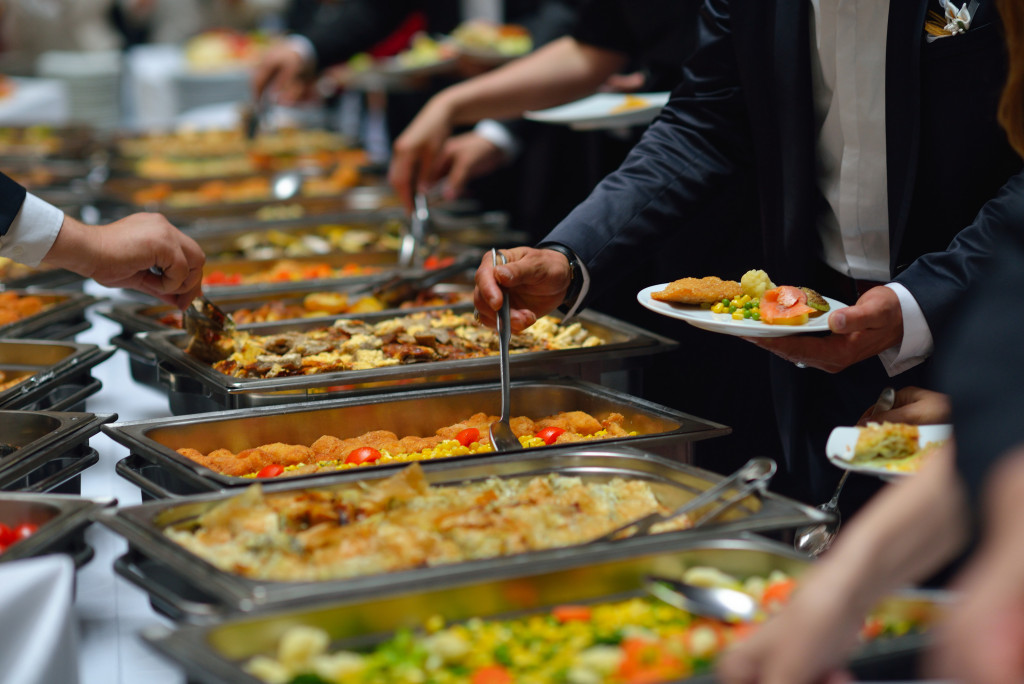Events can be a great way to meet new people and generate interest in your company, but you have to do it right! Here’s a list of some things you ought to know before hosting an event:
What is the goal of your event?
Events without a goal can waste time and money for your business. Make sure you know what you want to achieve before planning an event, so you can make sure it’s successful. Some possible goals for business events include getting new customers, generating leads, or strengthening relationships with current customers. Whatever the goal, make sure it’s clear to everyone involved.
Who is your target audience?
Events can be a great way to meet new people, but you need to make sure you’re targeting the right people. If your event is open to the public, do some research into your target audience and attract them through advertising and promotions. However, if your event is invitation-only, you’ll need to make sure you know who your target audience is and send out invitations to the right people.
What is the budget for your event?
Events can be expensive to put on, so it’s important to have a realistic idea of how much money you want to spend. Make a list of all the potential costs, including venue rental, food and drink, decorations, entertainment, and other miscellaneous expenses. Once you have an idea of the total cost, you can start looking for sponsors or ways to reduce costs.
What is the format of your event?
The format of your event will depend on the goal and target audience of your event. If you’re hosting a networking event, for example, you’ll need to make sure there are plenty of opportunities for people to meet and chat. If you’re hosting a product launch, on the other hand, you’ll need to make sure the presentation is well-organized and that there are enough products available for guests to check out.
What is the theme or focus of your event
Having a theme or focus for your business event is important because it helps create a unified and cohesive experience for guests. A good theme can help set the event’s tone and guide the planning process, while a good focus can help ensure that the event stays on track and achieves its goals. If you’re not sure what to choose, try to pick something that reflects the goals of your event and the interests of your target audience.
When is the best time to hold your event?
The date and time of your event can have a big impact on its success, so it’s important to choose wisely. For example, if you’re targeting working professionals, you’ll need to choose a date and time that doesn’t conflict with work schedules. On the other hand, if you’re targeting families, you’ll need to choose a date and time that works around school and extracurricular activities. Once you’ve chosen a date, be sure to promote the event well in advance so that people can clear their schedules.
What are the tools, equipment, and items your event needs?
Business events need various tools, equipment, and items to be successful. Some of the most important items include a good microphone system for presentations, comfortable chairs for guests, and a well-stocked bar. In addition, you’ll need to make sure you have enough stuff to keep guests occupied, such as games, decorations, and entertainment. If you’re holding the event in a large venue, you might need to rent or buy electric golf carts or other transportation. Make a list of all the items you’ll need, and make sure you have everything ready before the event starts.
What kind of venue do you need?
good venue is essential for a successful business event. It provides a space for guests to gather and interact, setting the tone for the overall experience. The right venue can also help attract the right guests and create a positive impression of your company. If you’re unsure where to start, try to find a venue that matches.
What type of food and drinks will you serve?

Food and drinks are an important part of any business event. They provide energy for guests and help to create a festive atmosphere. In addition, food and drinks can be a great way to promote your company and products. Try to choose foods and drinks that reflect the theme or focus of your event. For example, if you’re hosting a networking event, you might want to serve light appetizers and cocktails. If you’re hosting a product launch, on the other hand, you might want to serve a full meal.
With these questions in mind, you can start planning your event! Keep in mind that the more prepared you are, the more likely it is to be a success.

